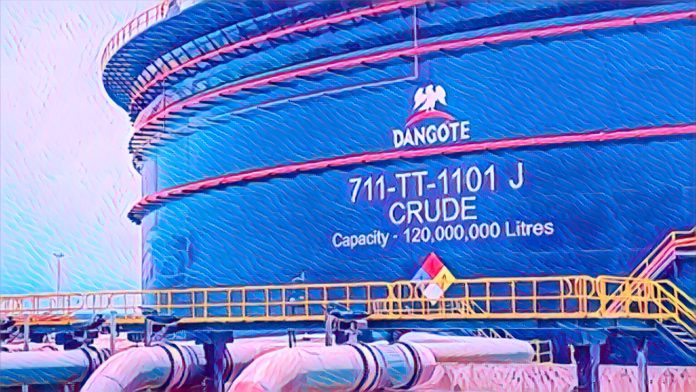KEY POINTS
-
Dangote Refinery has reduced petrol prices nationwide by N15 per litre, with new rates ranging from N875 in Lagos to N905 in the North-East and South-South.
-
The price cut, enabled by a naira-for-crude deal, applies to all major fuel marketers partnered with Dangote, as the company pledges stable and affordable fuel despite global oil market volatility.
-
Independent marketers have resumed large-scale petrol imports, while consumers are urged to purchase only from authorized outlets and report pricing violations.
In a move set to ease the financial burden on millions of Nigerians, the Dangote Petroleum Refinery has announced a nationwide reduction in the pump price of Premium Motor Spirit (PMS), commonly known as petrol.
Effective immediately, the price drop will see rates fall by N15 per litre across all partner retail outlets, with new prices ranging from N875 to N905 per litre depending on the region.
This announcement, made on May 22, 2025, comes at a critical time when Nigerian households and businesses continue to grapple with inflation and the economic aftershocks of fuel deregulation.
The Dangote Group stated that this pricing adjustment was made possible by efficiencies gained through the recent naira-for-crude agreement with the Nigerian government.
“The reduction in petrol prices is a strategic intervention aimed at cushioning the impact of global oil market fluctuations on Nigerian consumers,” the company said in a press release. “We remain committed to supplying affordable fuel across the nation while maintaining product quality and availability.”
Regional petrol price from Dangote Refinery breakdown reveals N875 in Lagos
Residents of Lagos will now purchase petrol at N875 per litre, a N15 drop from the previous N890 rate. Meanwhile, consumers in the South-West will pay N885, while those in the North-East and South-South regions will see prices set at N905 per litre.
AAN TV reports that the North-West and Central areas will pay slightly lower at N895 per litre.
The refinery confirmed that the new rates apply to all its major retail partners, which include MRS, Ardova, Heyden, Optima Energy, Techno Oil, and Hyde Energy.
Consumers are advised to buy fuel only from authorized outlets to benefit from the new pricing structure.
To reinforce compliance, the Dangote Refinery has urged customers to report any stations not adhering to the new rates via its designated hotline. “We encourage all Nigerians to be vigilant and help us monitor fuel stations to ensure transparency and fairness in the implementation of this price reduction,” the statement added.
The refinery also emphasized that the new prices will be maintained despite ongoing volatility in the global crude oil market.
This commitment is underpinned by the refinery’s vertically integrated supply chain, which allows it to manage production and distribution more efficiently than traditional import-dependent fuel marketers.
In a related development, independent oil marketers have resumed large-scale fuel importation after months of limited activity. According to figures from the Department of Petroleum Resources, over 496 million litres of petrol have been imported into Nigeria within the last nine days, indicating renewed stability in supply lines.
This price reduction is part of a broader trend in Nigeria’s energy market following the federal government’s removal of fuel subsidies in 2023. Since then, the market has gradually adjusted to deregulated pricing, although concerns over affordability have persisted, particularly among low-income households.
As the Dangote Refinery continues to scale up operations, it is expected to play a pivotal role in transforming Nigeria’s energy sector by reducing dependency on fuel imports, stabilizing domestic supply, and creating thousands of jobs.
Economists have welcomed the price cut as a timely relief for both consumers and businesses. “Lower fuel prices will reduce logistics costs, ease inflationary pressure, and potentially increase disposable income,” said Professor Musa Alabi, an energy economist at the University of Lagos. “But consistency in pricing and supply will be key to long-term impact.”



